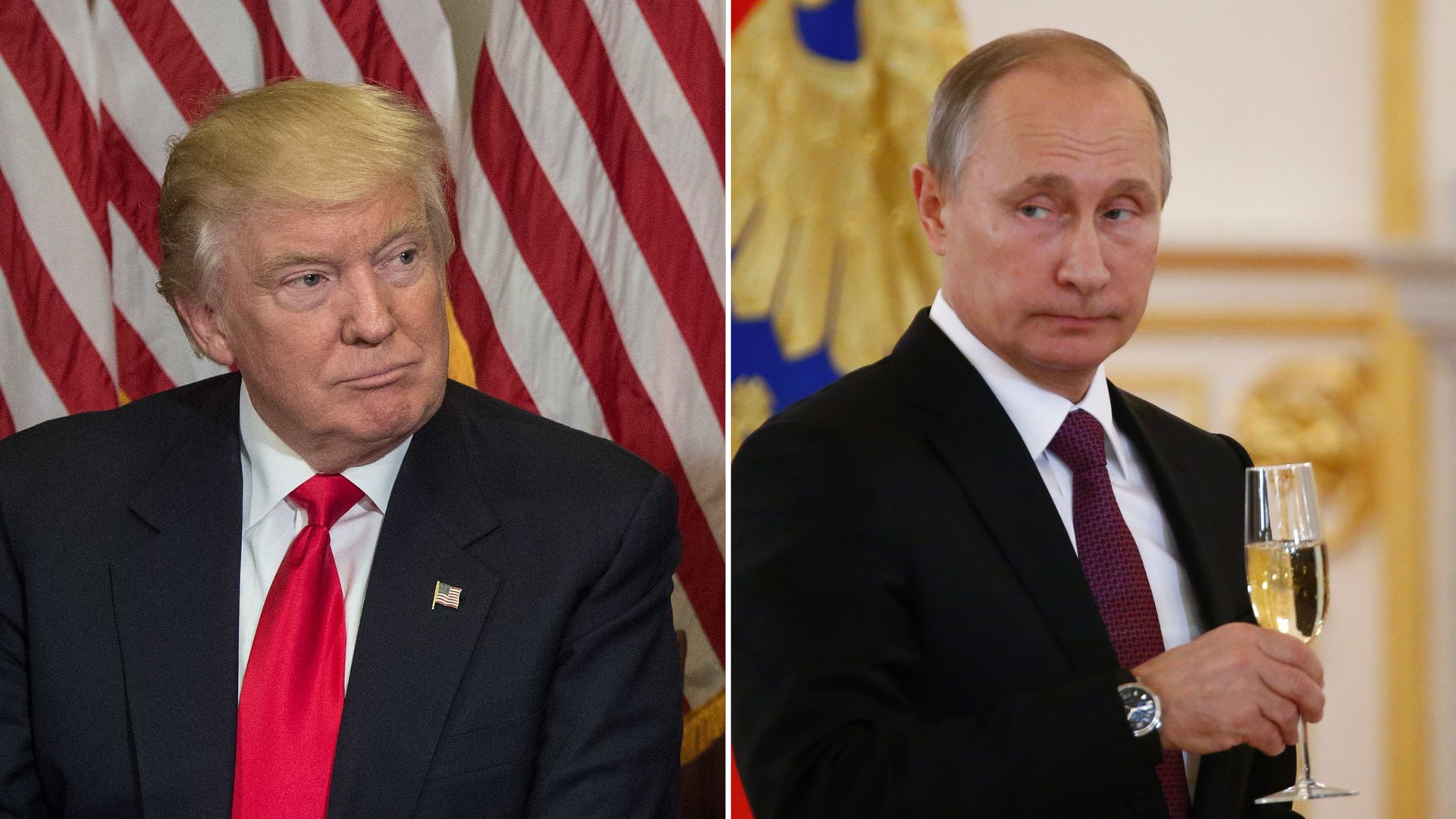
The cliche about the Russia investigation is that there's a lot of smoke, and with the firing of FBI Director James Comey, President Trump just rolled a military-grade smoke grenade into the room.
There were many legitimate reasons to fire Comey. Annoyance with his handling of the Russia investigation isn't one of them, although reporting suggests this was indeed Trump's motivation.
The firing has stoked charges of a coverup and again raised the questions, why, if Trump has nothing to hide, does he act so guilty? Why, if the Russia investigation is so meaningless, is he obsessed with discrediting all questions about it? Why, if there's no fire, is there always so much smoke?
But so far, the scandal is nothing but smoke: We get hints of what might be, pending further revelations, serious misconduct, always augmented by Trump's defensive bluster; and the evasions of his current and former aides. It's all highly suspect, yet it's hard to see what exactly will constitute the grave underlying offense.
Perhaps Trump has been funded by the Russians all along; his long-shot bid for president was to serve his Russian masters; and his campaign worked hand-in-glove with them in the Hillary hacking.
Yet the most plausible of these suspicions, the Russian collusion, has never made much sense on the face of it. The Russians hacked Democratic National Committee and Clinton campaign emails and walked across the street to hand them over to WikiLeaks for dissemination. Why would any coordination with the Trump campaign be necessary?
One theory is that they wanted to know how the leaks would play in the US. But in the summer of 2016, who would have gone to the Trump team, which seemed destined for an electoral drubbing, for strategic political advice?
Then there's the motley crew of Page, Manafort & Flynn, the former advisers evidently at the center of the Russia matter. According to the New York Times, Carter Page occasioned the FBI investigation into Trump's campaign when he traveled to Moscow last July. Page, listed as a Trump foreign policy adviser when the campaign was desperate for any names, is the very definition of a marginal player.
As for former national security adviser Michael Flynn, a haze of sketchiness surrounds him, and Trump showed poor judgment for getting so close to him. But his offenses have to do with the alleged failure to adequately disclose lobbying work and get approval for a paid speech for the Russian TV network RT in Moscow and his deception about the content of phone calls with the Russian ambassador (for which he was fired).
Then there's Paul Manafort. He's a stereotypical slippery Washington operator and a representative of unsavory foreign interests. It's easy to believe his business dealings deserve to be under investigation, and he may have had ulterior motives in working for the campaign.
Again, Trump showed poor judgment in making Manafort his campaign manager, but he fired him last August.
In short, it's entirely possible none of this really has anything to do with Trump directly. Yet he's been a human smoke-making machine. He is simply incapable of a little deftness.
During the campaign, he could have easily said, "It's clear the Russians are behind this hacking, and I'm appalled by it, but boy, is Hillary Clinton corrupt."
After the campaign, he could have said, "I support any and all investigations to get to the bottom of the Russian hacking." Anytime over the past few months, he could have said, "If there was any collusion with Russia by people in my campaign, I knew nothing about it, and I want them exposed expeditiously and punished harshly."
Maybe Trump doesn't say these things because he has a cognizance of guilt and fear of exposure. But there's a ready, innocent explanation: He never makes a concession against interest.
He knew admitting the Russians were involved in the hacking during the election would make his attacks on Clinton a little more complicated. He feared any additional focus on Russia after the election would legitimize Democratic claims the election was stolen and believes that, now, every day spent on Russia weakens his administration.
So he fights back hammer-and-tongs, and his critics sense something rotten lurking underneath the combativeness. Even if there's nothing at the bottom of the Russia matter, Trump and his team are still in jeopardy. Washington scandals have a way of becoming about the handling of the scandal, and the firing of Comey may signal the beginning of that phase.
Certainly that's the hope of the Democrats. Where there's smoke, in other words, they want to make fire.
Comment by clicking here.


 Contact The Editor
Contact The Editor
 Articles By This Author
Articles By This Author